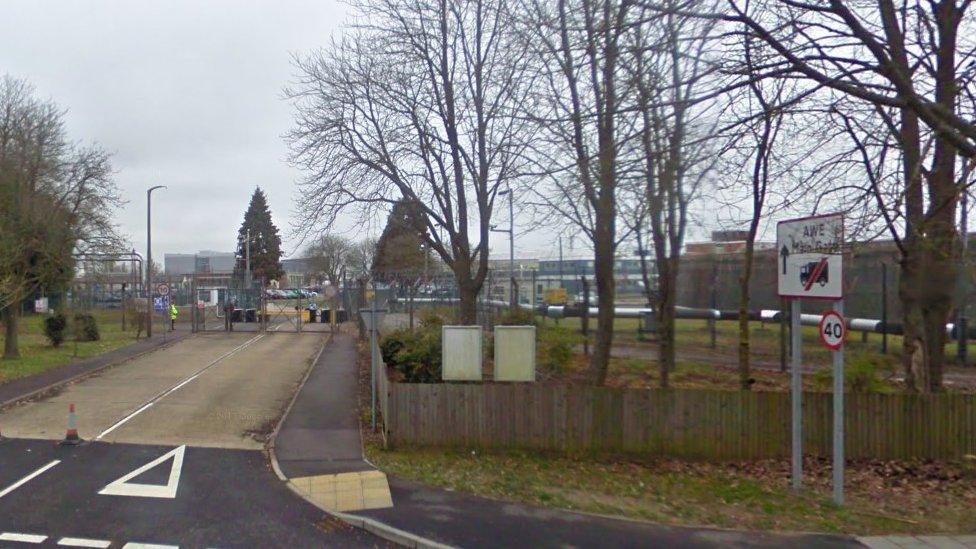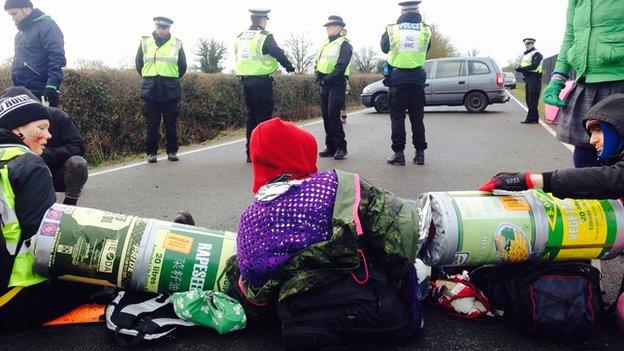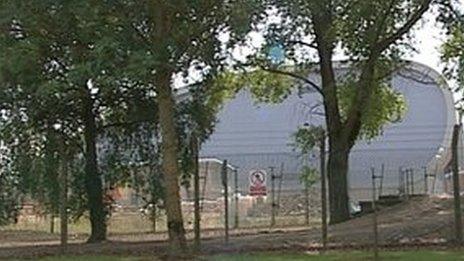AWE Aldermaston remains under scrutiny despite 'safety improvements'
- Published

Aldermaston is responsible for making Britain's Trident nuclear warheads and stores nuclear waste from Royal Navy submarines
The company responsible for a nuclear weapons factory in Berkshire has made improvements following safety concerns, the nuclear watchdog has found.
The Office for Nuclear Regulation (ONR) said the Atomic Weapons Establishment (AWE) at Aldermaston would nevertheless remain under an "enhanced" level of regulation for a fourth year running.
Its annual report said safety improvements were "well advanced".
Anti-nuclear groups said AWE was "not up to the job" of meeting standards.
Radioactive waste
AWE Aldermaston was first placed under special measures by ONR in 2013. The ONR said there had been "continued reliance on the use of aging production facilities" as well as delays in building new facilities.
The company's Burghfield plant is also being kept in the "enhanced" level of regulation category in the ONR's 2015/16 annual report, external.
The report said ongoing work currently being undertaken by AWE would improve safety in the disposal of radioactive waste.
Paul Rees, AWE's head of environment, safety and health said: "We aim to continuously improve on all aspects of our operations and processes as well as the quality of safety justifications and the timeliness of their delivery.
"Delivering safe and secure operations remains the core priority for AWE as is continuous improvement in environmental performance. This includes an enduring commitment to manage our waste in a safe and compliant manner."
Aldermaston is responsible for making Britain's Trident nuclear warheads. It also stores nuclear waste from Royal Navy submarines.
The ONR report stated that due to the long-term nature of dealing with radioactive waste, it was likely some facilities could remain in the category of "enhanced level" of regulation for a number of years.
David Cullen, of anti-nuclear campaign group Nuclear Information Service, said the four years in "enhanced" regulation showed AWE had failed to "meet the standards the regulator and the public expect".
"Instead of being spent to improve safety... money is being spent on developing more powerful weapons of mass destruction," he added.
- Published2 March 2015

- Published23 July 2014
